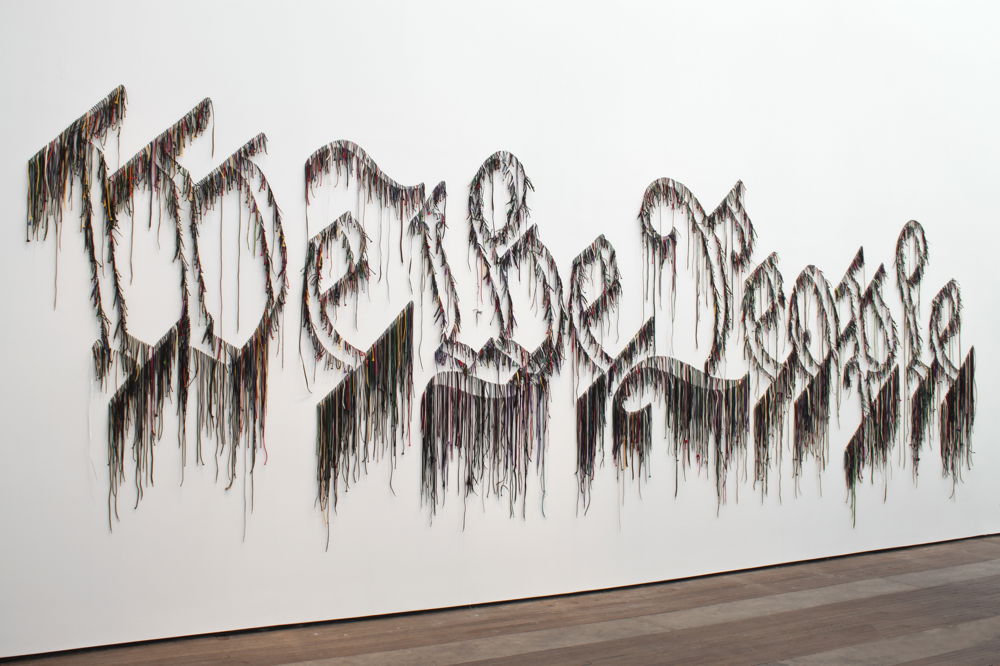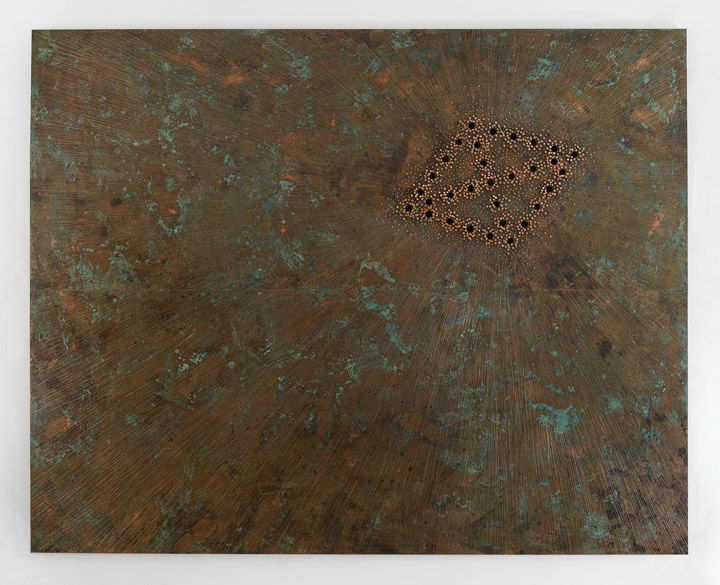
Photo by World Red Eye, courtesy of the Perez Art Museum Miami.
Nari Ward (born 1963, St. Andrew, Jamaica; lives and works in New York) is known for his sculptural installations composed of discarded material found and collected in his neighborhood. Ward has repurposed objects such as baby strollers, shopping carts, bottles, doors, television sets, cash registers, and shoelaces, among other materials. Ward re-contextualizes these found objects in thought provoking juxtapositions that create complex, metaphorical meanings to confront social and political issues surrounding race, poverty, and consumer culture. He intentionally leaves the meaning of his work open, allowing the viewer to provide their own interpretation.
One of his most iconic works, Amazing Grace, was produced as part of his 1993 residency at The Studio Museum in Harlem in response to the AIDS crisis and drug epidemic of the early 1990s. For this large-scale installation, Ward gathered more than 365 discarded baby strollers—commonly used by the homeless population in Harlem to transport their belongings—which he bound with twisted fire hoses in an abandoned fire station in Harlem. Echoing through the space was an audio recording of gospel singer Mahalia Jackson’s “Amazing Grace” on repeat. The lyrics speak about redemption and change, generating optimism and a sense of hope. As with most of Ward's work, this installation explored themes informed by the materials, community, and location in which he was working.
Donor -This award was generously supported by the USA Board of Trustees.
This artist page was last updated on: 12.15.2024

Amazing Grace by Nari Ward, 1995. 365 abandoned baby strollers collected from streets, firehose, audio element, dimensions variable. Originally presented in a Harlem Firehouse; image is from presentation at New Museum 2013.
Photo by Jess Untract-Oakner.

We The People by Nari Ward, 2011. Used shoelaces, dimensions 96 × 324 inches. In collaboration with Fabric Workshop Museum, Philadelphia.
Photo courtesy of the artist and Lehmann Maupin Gallery.

Breathing Panel; Oriented Right by Nari Ward, 2015. Copper sheets, darkening patina, copper nails, dimensions, 96 × 120 inches.
Photo courtesy of the artist and Lehmann Maupin Gallery.